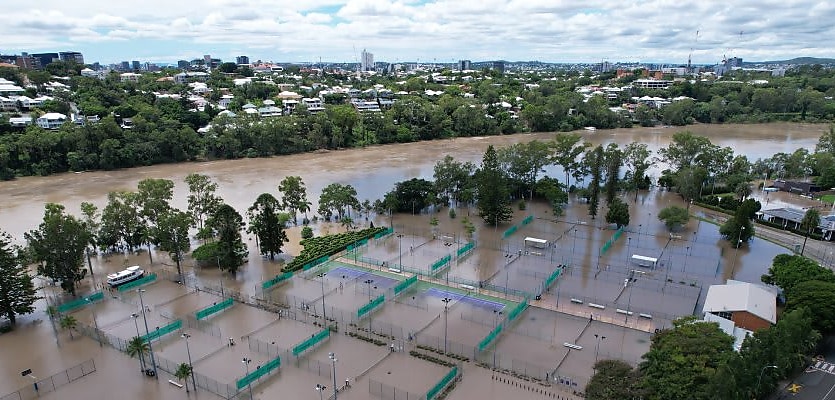As floods continue to grip parts of Queensland, the state’s peak real estate body warned that the crisis would add pressure on the region’s already strained rental market.
Real Estate Institute of Queensland (REIQ) chief executive Antonia Mercorella said that the recent natural disaster would render many properties in flood-impacted zones unfit to live in. In some cases, she said the flood damages to properties would result in the termination of the lease agreement on the grounds of non-livability and, for others, temporary relocation – both of which will add strain on housing.
“The timing of this major flood event couldn’t be worse – It will displace tenants and owner-occupiers and diminish levels of rental stock at a time when we are experiencing incredibly tight vacancy rates across all corners of the state,” Ms Mercorella said.
She said the recent catastrophe would worsen the state’s rental crisis and put an “enormous amount of stress” on tenants and on property managers who have already been dealing with the difficulties brought on by the pandemic and undersupply issues in the last two years.
“We also know that tradespeople and building supplies are rare as hen’s teeth in the current market, with a pre-existing backlog of enquiries for various standard renovations, repairs and building works – meaning flood affected property job enquiries could be joining the back of an already long waitlist,” Ms Mercorella added.
“These wait times could mean it’s some time before we see properties repaired or ready to re-join the rental pool.”
REIQ appeals for ‘patience and understanding’ for property management sector
While Ms Mercorella acknowledged the urgency of inquiries and concerns raised by property owners and tenants, she also addressed the “extraordinary strain” being placed on property managers and called on all parties involved in a tenancy to be realistic on their expected response time.
“We ask that both property owners and tenants be mindful of the heightened demand on property managers during natural disaster events and understand that response and processing times are likely to be delayed and prioritised based on needs and emergency situations,” she said.
She explained: “Property management is a mammoth job and while there may appear to be quick-fix solutions to damages, it’s important to consider the scale of enquiry your property manager may be processing.”
Ms Mercorella further clarified that there is no standard communication protocol or response time in a widespread natural disaster, as each agency has a differing position in terms of staff resourcing, size of their rent roll, the number of affected properties they’re overseeing.
She also raised the possibility that property management offices or personal residences have been impacted by the floods too, making them unable to respond to inquiries or concerns.
“It is also quite difficult to assess the extent of the damage while the situation is still unfolding for many, so what we ask for is patience and understanding from all parties in a tenancy,” she said.
Grants and support for tenants impacted by flooding
As Queensland authorities estimate that thousands of properties to be left waterlogged or uninhabitable by the flood, Ms Mercorella encouraged tenants to familiarise themselves with available resources detailing their legislative rights and what to do if the floods have damaged or made their rental property unliveable.
“Residential tenancies in Queensland are regulated by legislation and the right to terminate a tenancy agreement on the basis of non-liability applies equally to tenants and property owners,” she explained.
To better understand residential tenancies legislation, REIQ advised tenants to seek support from the Residential Tenancies Authority (RTA) and refer to resources such as the agency’s Natural disasters fact sheet.
REIQ advised tenants experiencing hardship to check if they qualify for the following government assistance and grants:
- Australian government disaster payment – Eligible tenants may claim up to $1,000 per adult and $400 per child through the Services Australia website or call 180 22 66.
- Australian government disaster recovery allowance – The disaster recovery allowance (DRA) is a short-term payment that offers support to people whose income has been affected by a disaster. The DRA is available for a maximum of 13 weeks and is a taxable payment. For more information, check here or call 180 22 66.
- Joint Queensland/Commonwealth emergency hardship assistance grants – The Emergency Hardship Assistance grants help cover the costs of essential items, such as food, medication and clothing. If deemed eligible, tenants can claim up to $180 are available per person and $900 for a family of five or more. For more information, check here or call the Community Recovery Hotline at 1800 173 349.
- Joint Queensland/Commonwealth essential household contents grant – Tenants may be eligible for financial assistance to provide a contribution towards replacing or repairing essential household contents, such as beds, linen and white goods, that have been lost or damaged in a disaster. Eligible tenants may receive up to $1,765 for single adults and up to $5,300 for couples/families. For more information, check here or call the Community Recovery Hotline at 1800 173 349.
- Tenants needing temporary accommodation – Tenants who are in need of accommodation support may call 13 74 68 or visit the Queensland government housing website.







You are not authorised to post comments.
Comments will undergo moderation before they get published.